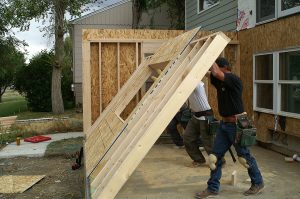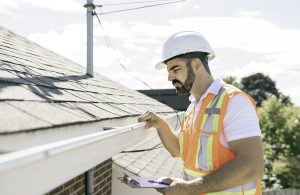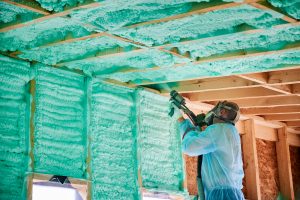Adding onto your home can be exciting, offering increased space and functionality. However, before you get the construction underway, it’s important that you understand what home inspectors look for when inspecting home additions so you can ensure the new space meets safety and code standards. Today, we’ll share seven things inspectors prioritize when evaluating home additions.
[Read more…]When Is a Home Inspection Required?
Believe it or not: home inspections usually aren’t mandatory. Yet, they still come highly recommended by real estate agents, banks, appraisers, and other professionals involved in the housing market. While your mortgage lender or local regulations might not deem a home inspection required, getting one is wise and often cost-effective for homeowners and buyers alike, as it can help them avoid significant financial losses and potentially deal-breaking issues with the house. Let’s explore some scenarios in which a home inspection is invaluable!
[Read more…]Home Inspections and Appraisals: What’s the Difference?
For first-time home buyers, it’s easy to get all the different terminology related to the housing market confused. Take, for example, home inspections and appraisals—after all, both involve a professional doing some type of examination and evaluation of the premises. So, what’s the difference between the two? Let’s break it down.
[Read more…]Common Issues Found When Inspecting Older Homes
Older homes can have a lot of architectural character and unique style. If you’re house hunting, you’ve probably noticed older ones on the market that are significantly less expensive than any relatively new construction. But the lower listing price isn’t just because of some shag carpeting or outdated kitchen cabinets—it’s because these houses tend to come with the risk of problems that require expensive repairs. In this blog, we’ll share some of the issues we most commonly find when inspecting older homes.
[Read more…]What Is a Home Seller’s Pre-Inspection?
As a home inspection company, we frequently write about buyers’ inspections on this blog. However, did you know that sellers have something to gain from getting a home inspection, too? That’s right. From identifying issues early on to standing firm in your asking price, let’s discuss what the benefits of a seller’s pre-inspection are.
[Read more…]Why You Shouldn’t Waive a Home Inspection
As a result of the hot housing market these past few years, potential buyers have often been in fierce competition with each other. Many have made offers tens of thousands of dollars over asking price, made all-cash offers, and waived the appraisal and/or home inspection contingencies to give them an edge in the seller’s market. As a home inspection company, we find the latter-most trend particularly troubling—but not just for business reasons. Let’s unpack why you shouldn’t waive a home inspection when purchasing a house.
[Read more…]What Home Inspectors Check Outside Your House For
When it comes to a home’s exterior, not everything is about curb appeal and cosmetics. Sure, the perfect paint color and a lush lawn will catch someone’s eye, but the outside of a house is about structure, functionality, and safety just as much as the inside is. And while the average home buyer can’t always see a house’s potential issues from driving by or walking through a showing, a proper home inspection can reveal things the naked eye misses. Today, we’re reviewing what home inspectors check outside of houses for.
[Read more…]Why Home Inspectors Check Windows and Walls
When performing a residential inspection, a home inspector has to check all sorts of things—from plumbing and electrical systems to attics and appliances. They also have to check the most basic, yet still important, barriers in the home: windows and walls. In this blog, we’re going to focus on what all home inspectors check windows and walls for specifically.
[Read more…]Can I Perform My Own Home Inspection?
DIY projects—like re-staining furniture, building a bookshelf, or painting a wall—can be fun for the ambitious homeowners looking to save some cash. But when it comes to a home inspection, is that something you should try doing yourself? As a home inspection company, you can probably guess what our answer is going to be. But we’re going to tackle the question anyways! Let’s discuss whether a home buyer can and should perform their own home inspection.
Home Insulation: What an Inspector Looks For
Most New Englanders are familiar with insulation and its crucial role in a household’s climate. Put plainly, insulation is the stuff that helps keep our home environment cool in the summer and warm in the winter. But there’s much more to it than that. And since it’s such an essential element of a house, it is indeed something inspectors examine during a standard home inspection. So, let’s go over the ins and outs of home insulation and what an inspector looks for.
[Read more…]








